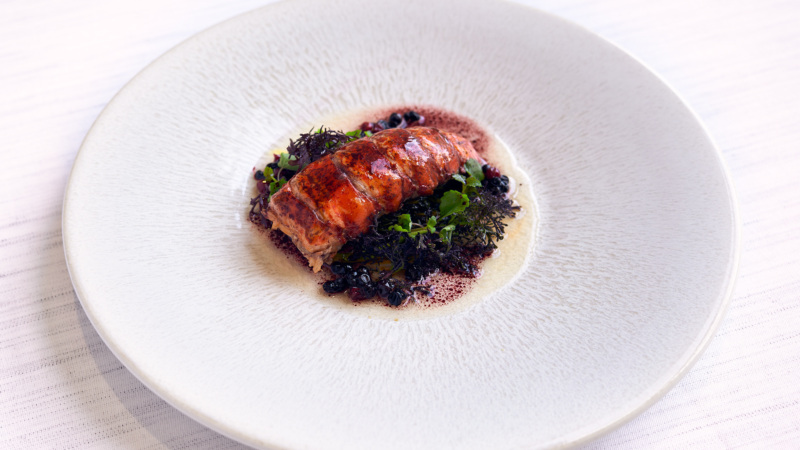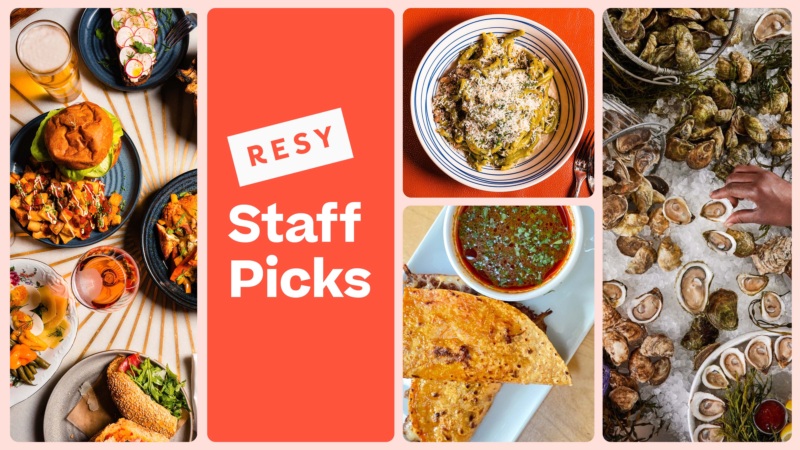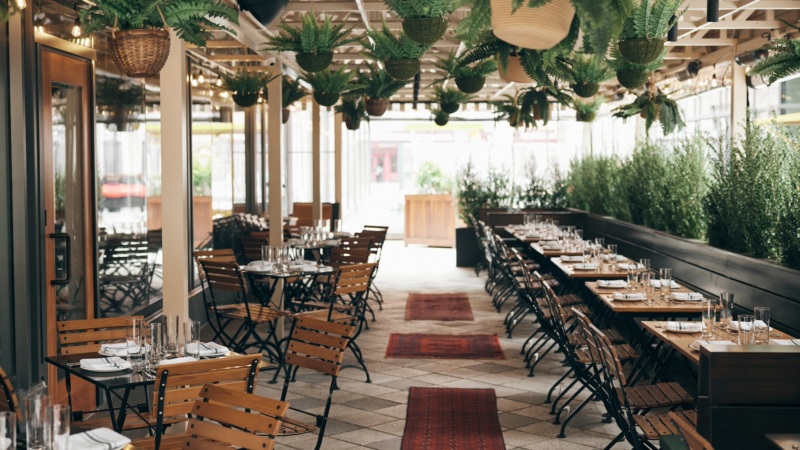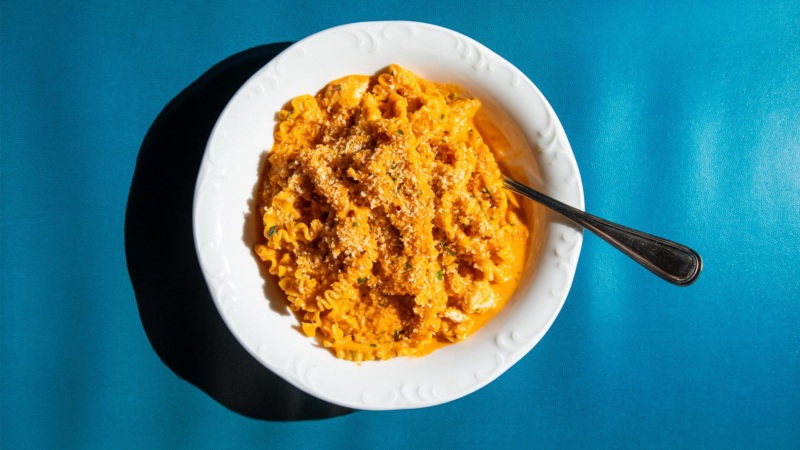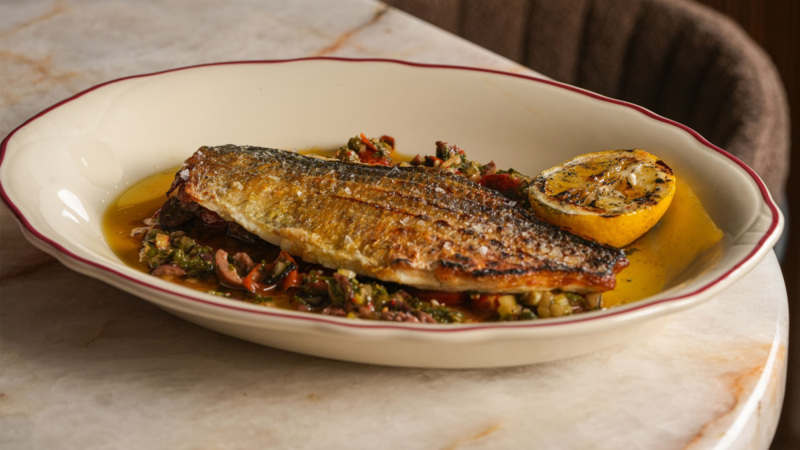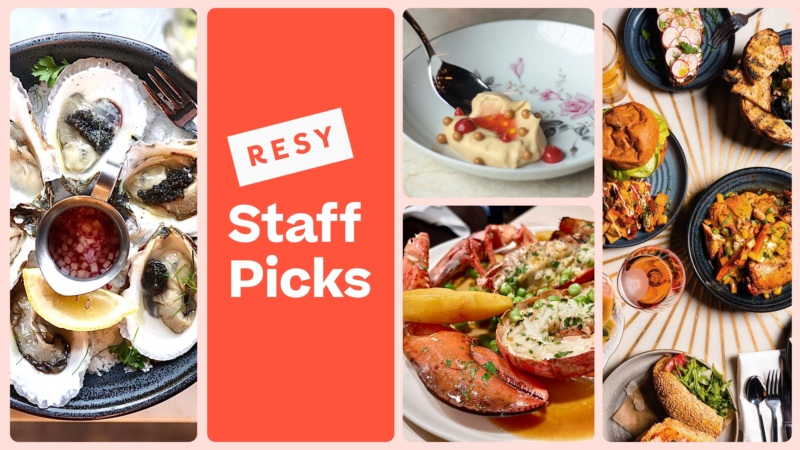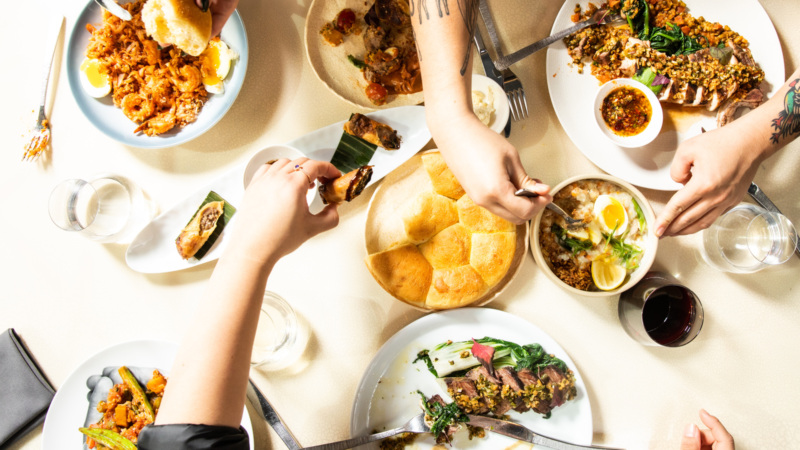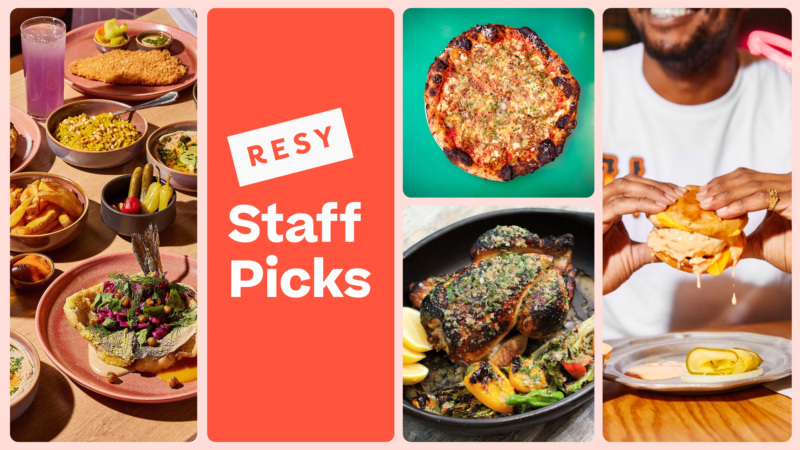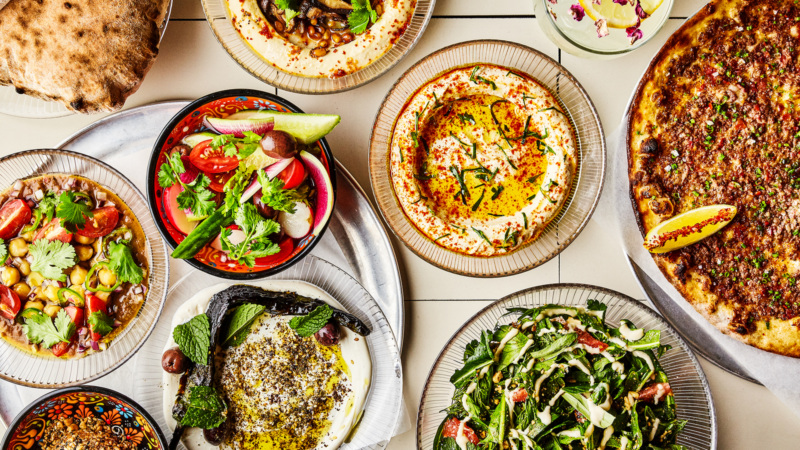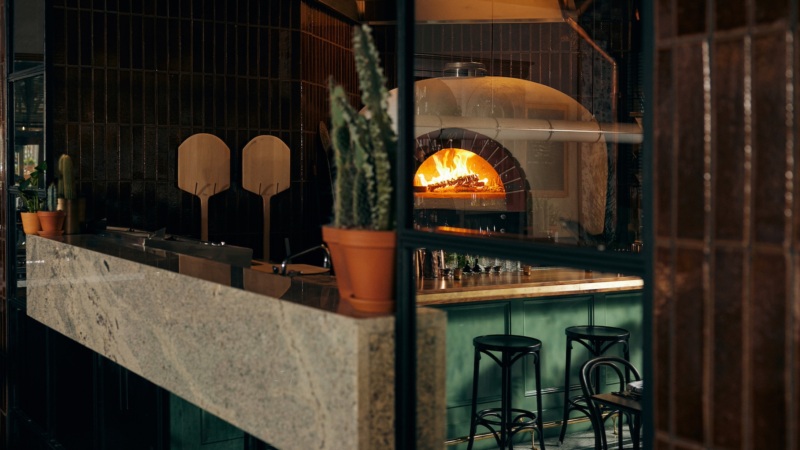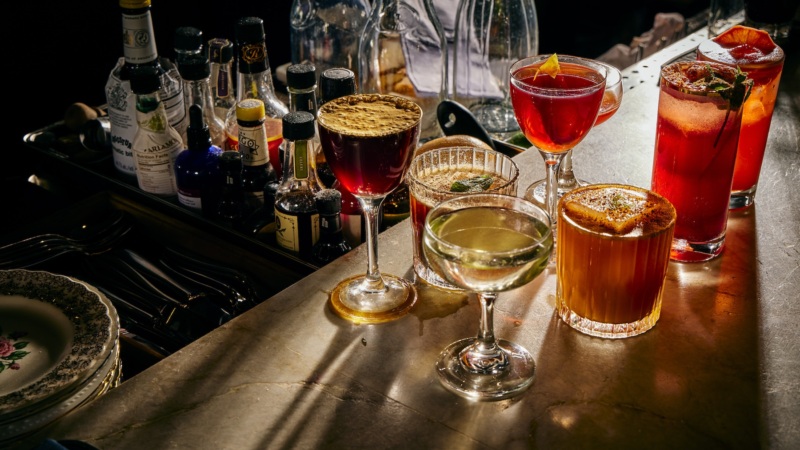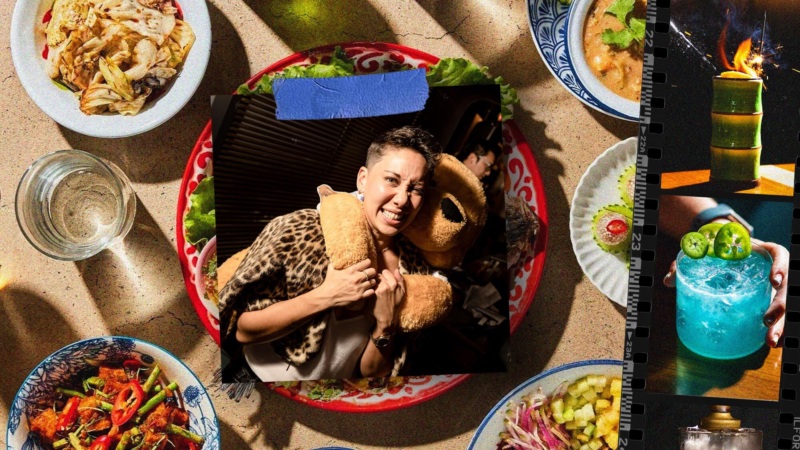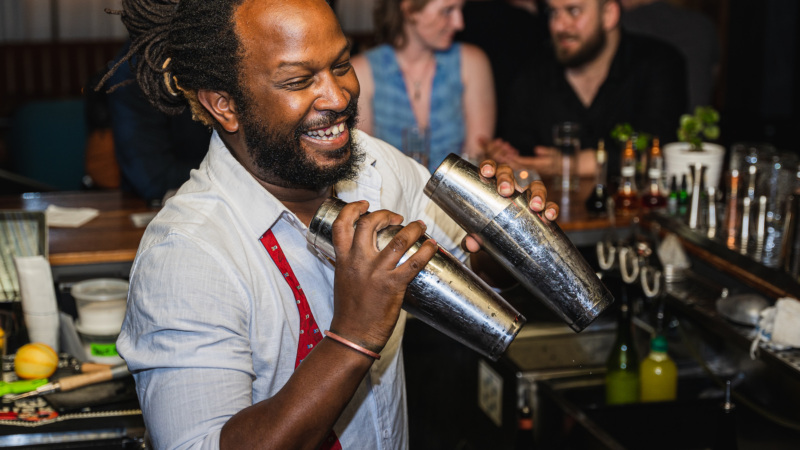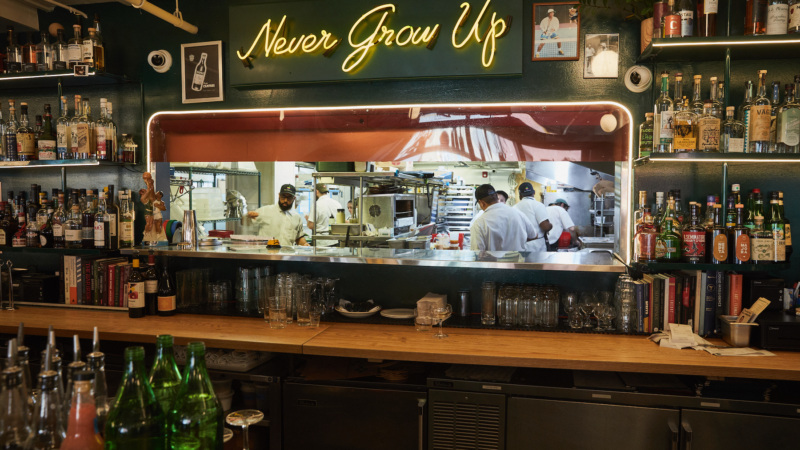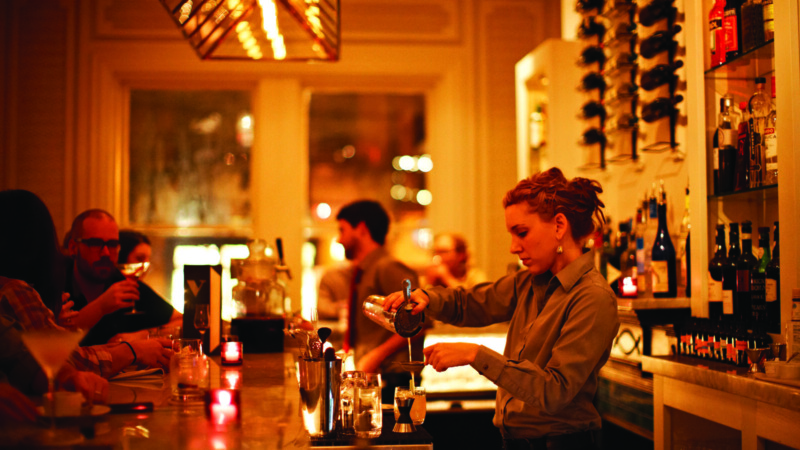
In Philadelphia, A Supper Club Built For the Black Community
Elijah Milligan always has several projects cooking at once. A few years ago, he launched Cooking for the Culture, a pop-up dinner series that spotlights Black chefs. And during the pandemic, Milligan worked alongside a group of chefs to build Everybody Eats, the chef-led food drive that provided meals to those particularly impacted by protests sparked by the murder of George Floyd.
But for several years, simmering in the back burner of his mind was the Greenwood Supper Club, a project to bring Philadelphia’s tradition of such clubs to today’s Black community. “Greenwood came about in a few different ways,” says Milligan. “I was cooking around the country, working at high-end hotels and clubs, and being invited to certain things. I was living a cool life for a chef, but many of these spaces didn’t really belong to people of color.”
For those who may not be as familiar, a quick introduction: There are social clubs — special interest groups that meet for organized events — and there are supper clubs, members-only restaurants that also operate as social clubs. Philadelphia has a long history with both. While many of the city’s clubs are seen today as exclusive restaurants and after-hours bars, originally they were built to create and preserve networks within specific communities. Ruba, the ballroom and theater that now hosts live shows, started out in 1914 as the Russian United Beneficial Association, and provided insurance and social benefits to Russian immigrants moving to Philadelphia.
The famous Palizzi Social Club in South Philly opened in 1918, and was not only a hangout for Italian Americans, but a place where their language and traditions were preserved — and where members could take care of one another, as third-generation owner and chef Joey Baldino notes in his cookbook Dinner at the Club. A century later, these clubs welcome broader communities than those they initially were created for, but the spirit remains of creating pathways and social inroads for its members.
In its way, Philadelphia has an even longer history with Black social organizations — although in a slightly different form. The city is the birthplace of the Free African Society, America’s first formal Black society, founded in 1787 (which predates the Union League, founded in 1862 to support Abraham Lincoln’s policies). Later, in 1926, the Improved Benevolent and Protective Order of the Elks of the World, a Black fraternal beneficiary society that was formed in 1897 in response to the closed ranks of the Elks, started a chapter in Philadelphia. And in 1930, they built their lodge at 19th and Christian Street — in the heart of what is called a “Main Street for Philadelphia’s Black Elite” by the Preservation Alliance for Greater Philadelphia. There are still Improved Order lodges in Philadelphia, although in recent years the building that once housed the organization’s second-largest lodge in America has been replaced by new rowhouses.

And yet, supper clubs were never overtly part of this history. Thus, a club like Greenwood is new to Philadelphia’s dining scene.
Or will be: at the moment, Greenwood is a series of pop-up events, while Milligan and his team search for a brick-and-mortar location. The events both build excitement for the prospect of Philadelphia’s first pro-Black supper club, and spread awareness about issues facing the city’s Black community.
In May, Greenwood hosted an event for Mental Awareness Month with a guided meditation, a therapist-led conversation, and group breakout sessions, along with a family-style meal. For Juneteenth, Greenwood is hosting a drive-in movie event featuring films by Black and Brown talent. Once he secures a location, though, hopefully by the end of the year, Milligan plans to make Greenwood a permanent fixture: an elegant dining space serving upscale dishes with modern presentation created by a Black chef, which also supports Black and Brown entrepreneurship, and invites everybody to the table. While there are no memberships required right now, they eventually will be available to anyone interested in joining and supporting a pro-Black space.
▪️
Early in his career, Milligan recognized the importance of having a space dedicated to the Black community. Working for more than 15 years as a fine-dining chef, there were many times when, Milligan says, he’d look around and notice that he was the only Black person in the room. “I’ve been able to go to these clubs and in these settings, but it would be nicer to be around people who look like me,” says Milligan. “It comes down to the idea that this doesn’t exist for us. So how do we do it? How will it get done?”
For years, he bounced around ideas with his friends, envisioning what such a space would look like. But the notion really took shape after Milligan had a conversation with Chrystin Bunion, Greenwood’s co-founder and creative director. Together, they collaborated on the concept of Greenwood — a supper club inspired by the affluent district of Tulsa known as “Black Wall Street,” which was destroyed by a white mob in the 1921 Tulsa race massacre.
“Greenwood is paying tribute to Black Wall Street,” says Milligan. “If Black Wall Street still existed today, what would it feel and look like? That’s what Greenwood is.”
The notion of creating a Black social space is, in its way, an element to American life that is likely to receive more attention in coming years. While Black-owned country clubs have existed for at least a century, the elite private spaces where business and socializing often take place in communities were, historically, white-owned and segregated — in some cases until not many years ago. So there is something vital to the idea of claiming such spaces for the Black community to socialize.
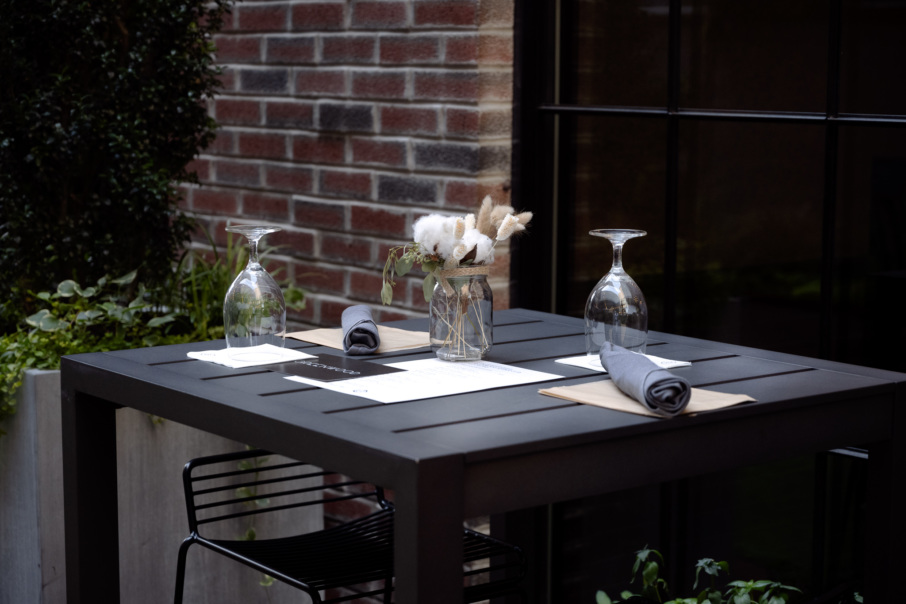
This helps to explain why, indeed, a handful of other Black supper clubs are emerging across the country in recent years. The Adá Supper Club, which celebrates Black and female chefs, opened in New York City in February 2020. In 2018, the Green Book Supper Club hosted pop-up dinners in Durham, N.C., featuring Black chefs from around the state.
But to Milligan, the Greenwood Supper Club will be about more than just great food and great drinks. It’s also a collective of talented people. “It’ll be a way for Black entrepreneurs to connect,” says Milligan. As part of the club’s membership, he plans to have resources where members can find Black-owned businesses. ”Let’s say someone is having a wedding and they want to support Black-owned businesses,” he says. “Through our forums they’ll be able to connect with a photographer, a caterer, a venue – any Black business they’ll need.”
It will also be a place for entrepreneurs to network, to gain access to investors, discuss the stock market and real estate ventures, and find information on state and federal resources available to Black-owned businesses. “It’s about bringing wealth to Black business owners and Black communities,” says Milligan, “and everyone is invited.”
Find more info about Greenwood Supper Club at greenwoodphilly.com.
Kae Lani Palmisano is the Emmy Award-winning host of WHYY’s “Check, Please! Philly,” a television show that explores dining throughout the Philadelphia region. She is also a food and travel writer with work in USA Today, 10Best, KitchenAid Stories and more. Follow her on Twitter and Instagram. Follow Resy, too.

